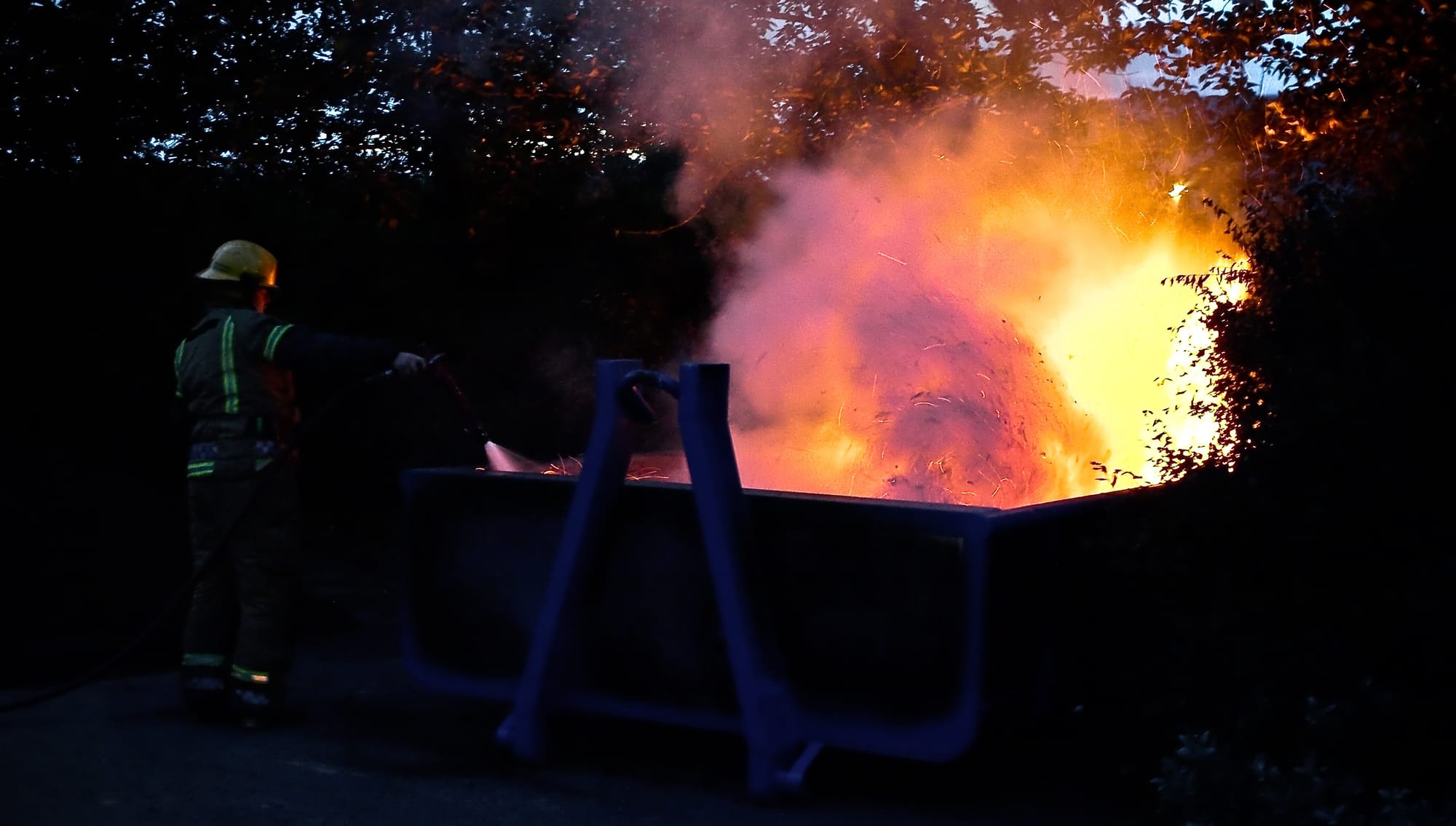Top Tips for Navigating a Garbage-Fire Info Environment
It is rough out there for anyone trying to be reality-based. Basic comparative metaphysics can help.

Part I
It is rough out there for anyone trying in good faith to be reality-based. We've had decades of right-wing operatives openly flooding the zone with shit, poisoning the information environment so much that many people lose hope that truth is even discernable and retreat into in-group echo chambers or checked-out nihilism. We've had media structures, institutions, and apps increasingly fracturing us into bespoke realities and manipulating our attention and rage for power and profit. We've had mainstream news outlets refusing to recognize their agenda setting responsibility or to convey stakes and context. Local news continues to disappear. Even in the sciences, we've had research replication crises and deep inequities undermining trust. Everyone knows people who are utterly convinced of batshit bonkers untrue things; hell, quite a few are U.S. cabinet officials. And now AI everywhere? Oof. It's a hot mess.
What can we do? It's a systemic problem, but one where individual actions matter. First, let's affirm that truth and falsity are discernable and worth discerning, even now. Reality isn't purely a matter of subjective opinion or power.
The best practical way to discern what's real and true in such a challenging information environment is, maybe surprisingly (although not to anyone who's been following this blog!), to start at the foundation with a coherent, empirically-grounded understanding of what reality is. That's technically the domain of basic comparative metaphysics. Yeah, I know, metaphysics has a terrible reputation, but basic comparative metaphysics is definitely not as difficult or esoteric as it might sound. We actually encounter and use it implicitly all the time. It just isn't expressly taught; but distinguishing the map from the territory of reality at that most general level is a useful skillset even children could practice. Once learned, people can apply these skills at a personal level, share them in our networks, and ultimately build toward reality-based societal change.
After a section briefly reviewing separate-substance (map) versus process-relational (territory) metaphysics, this post and the next will distill many of my best, tried-and-true strategies and tactics for finding and evaluating credible knowledge. I've honed and tested these tips as a published scientific and legal article author and reviewer; as a highly trained interdisciplinary researcher, fact-checker, and analyst at the Library of Congress's Congressional Research Service (CRS);* as a "translator" of climate, energy, law, and justice concepts across professionally and culturally diverse and often skeptical audiences; and as an aspiring book author getting direct feedback from subject matter experts across a huge range of domains, including on these tips themselves. I've also cultivated my curiosity and openness to updating my thinking in light of credible new information, whatever the source. That's probably the most important aspect of getting things less wrong, after wanting to and knowing it's possible: understanding it's a never-ending journey and not a destination anyone will ever reach.
What's Real

What kinds of things, in the broadest possible sense, is reality made of? What does it mean for a thing to exist? It's pretty much impossible to think about anything without some underlying framework here. Plenty has been written and said about metaphysics over millennia of history, including more than a little speculative blather. However, if you zoom out far enough, you can place most of it along a two direction gradient. As discussed in a previous post, there's evidence that these directions may correspond to our left and right brain hemispheres.
In one direction, we have substance or substantialist metaphysics. In short, things as substances are separate, self-contained, and defined and made real mostly by clear, universal, and unchanging boundaries and essential properties. They have fundamentally the same existence before and after they happen to interact, bouncing around like billiard balls inside an inert, linear backdrop of space and time. The combination of separateness and static, mono-perspective ideals provides crucial support for status quo hierarchies and reduced consideration of consequences to different others. In the atomistic and Cartesian dualist version of this metaphysics that still largely dominates Euro-Western culture, mind is separate from mechanistic matter, with comparable divides between subject versus object, culture versus nature, and hard (abstracting, self-interested, competitive, quantitative, masculinized) rationality versus fluid (embodied, caring, mutualistic, qualitative, feminized) feeling. Endurance of things and kinds is taken for granted, and change must be explained. Explanations tend to be deterministic and reductionist. Contradiction is verboten as threatening to reality and/or our meaningful communication about it.
In the other direction, we have process-relational metaphysics. In short, things as processes are intertwined, mutually shaping, and defined—sometimes fuzzily, but no less real for that!—by situatedness, relations, and the persistence of relative coherence. Multi-level interactions among systems and processes of change and stabilization are what make things what they are. Mind and matter, culture and nature, and so on are mutually co-constituting, distinguishable but inseparable and overlapping. Reality emerges from and as a dynamically interdependent web or network of events. Everything flows, even what is seemingly solid. Change is taken as the baseline, and endurance gets explained in terms of process stabilization over various scales of time and space. Explanations tend to be contextual and integrative. Contradictions sometimes happen without threatening reality.
That's not so existentially scary, is it?
Contrary to metaphysics' reputation, some metaphysical questions are empirically answerable and not mere matters of opinion. That's especially true at the highest level of generality: whether or not we can ever arrive at "the" right metaphysics, which overall direction of conceptualizing the things that constitute reality is less wrong? We can look to physics, biology, cognitive science, social sciences, and many other domains beyond philosophy. There's a very strong, albeit under-reported, convergence of evidence from myriad directions that separating substance-thinking is a simplified and approximate mental map of a terrain of reality better understood as process-relational. That's why I call substance-thinking "map-metaphysics" when it mistakes the map for the territory. Results of reductionist, substantialist inquiries obviously can be useful but they must be integrated into the larger and more complex terrain of reality; they cannot, by themselves, ever fully explain that reality. We can conceptually freeze and isolate things but we have to understand that the things themselves are never truly frozen or isolated. From quarks to quasars and from cells to societies, process-relational frameworks consistently get right what map-metaphysics assumptions get wrong.
In philosophical terms, our choice of general direction on this ontology, how things are, shapes our epistemology, how we can know things. In a world of supposedly separate substances, we know things from our side of an inherent subject-object divide: we subjects are "in here," and the world we observe is "out there." To grossly oversimplify some fraught topics, considering the "mind-independent" material object side more fundamental is, roughly speaking, "realism" or objectivity. Considering the subjective, discursive side more fundamental is, roughly speaking, idealism, relativism, or social constructivism. In a process-relational world, on the other hand, we are inextricably involved in knowing and defining things we encounter; observation makes us part of the phenomena we observe. We are not thereby creating things with our consciousness or language, as some philosophical idealists believe, nor simply perceiving them as they independently are, as a naive or scientific realist might say. We are, in effect, contributing to their place and meaning in our unfolding, entangled reality, and they to ours.
A recent thesis summarized that process-relational reality is "a negotiated construction, not entirely objective, yet not merely subjective. It is emergent, dynamic, and dependent on continual perspectival input."
This basic comparative metaphysics also shows up in hugely important ways in our politics. Although people across the ideological spectrum can get caught up in reductionist map-metaphysics assumptions, it's those on the far right who tend to be the most zealously committed to a false and unsustainable reality that is antagonistically divided, atomized, boundary-policed, essentialized, rigidly hierarchical, self-interested, competitive (or monopolistic), and ultimately simple enough to be fully certain and under their control. When the world deviates from their black-and-white maps, they try to terraform it to fit. For instance, when their strict gender binary is refuted, it doesn't harm them, yet they react as if updating their maps is existentially threatening; their reality cannot abide such anti-essentialist fluidity. It's a bonus that othering LGBTQIA+ people serves the exploitative dominance hierarchies, like patriarchy and hyper-capitalism, for which map-metaphysics also provides load-bearing support. By contrast, features of process-relational reality such as integrative systems, enduring influence of history, open possibility, value in diversity, pluralistic coexistence, inclusive caring, cooperative mutualism, and equitable mattering sound pretty damn woke (complimentary).
All this has practical implications for how anyone can know anything these days. For a start, it improves our thinking simply by encouraging us to see ourselves and our beliefs as fluid processes rather than fixed essences, reassuring us that our existential continuity and identity aren’t threatened but elevated when we continue to learn, grow, and let things go. Phew! Moreover, while there's not one universally best and most objective "view from nowhere," there's also far too much entangled relationality for anything-goes relativism. We have to approach knowing our shared reality by zooming out and considering different perspectives. Although we should do this with epistemic humility, we don't have to take every perspective at face value. We can evaluate and weight different perspectives' relevance and reliability based in part on their compatibility with shared process-relational reality. That credibility is going to be politically asymmetrical, because factual reality has an anti-fascist, anti-extractivist, downright woke bias.
What's Out

Let's begin by screening out low-quality sources from our limited and precious attention. No one, no matter how knowledgeable or savvy, should ever assume we're immune from being influenced by propaganda or bad sources—even if we know they're bad! Mentally as well as physically, we are what we eat. The more we consume misinformation and disinformation, the more it will affect our cognition.
Process-relationality can be extrapolated to some red or yellow hazard flags suggesting a source or piece of information should be critically ignored or at least not relied on alone and at face value. A few of these hazards are evident from individual items themselves. More frequently, spotting probable wrongness requires consulting other sources (e.g. lateral reading) or otherwise zooming out from a particular piece to a source's larger history or context. These cautionary signs include:
- A history of uncorrected false statements, such as what Fox "News" has admitted in legal proceedings, or the often inaccurate synthetic text that large language model "AI" extrudes. It's best to limit exposure to sources known to lie or bullshit. They might happen to say some true things sometimes, but so what? Anything they might say that does happen to be true will be validated by a credible source. How do you know if they're lying or bullshitting when they don't admit it? From other sources contradicting them with facts and solid reasoning, which is part of why it's essential to not limit yourself to a narrow range of perspectives. Uncritical stenography of known liars fits here too.
- Seriously, do not rely on ChatGPT or similar tools for factual information. That's not a valid use case in 2025, if ever. If your browser's search bar uses Google, Tom's Hardware has instructions to set it to direct your queries to the web search tab, which excludes AI and video results.
- I also fully endorse using parental controls to block Fox/Newsmax/OANN televised brain-poison anywhere you have access to do so. Other TV channels may not be great, but those are measurably more misleading.
- Refusing to admit or correct mistakes (let alone take accountability for harms caused), reacting defensively to good faith critique, moving the goalposts, twisting counterevidence into supporting evidence to evade falsifiability, or lacking adequate built-in self-correction mechanisms or accountability for failed predictions.
- Sources are often able to be more convincing to others by convincing themselves first, or at least acting very sure of themselves. However, even totally sincere confidence is not actually a reliable indicator of credibility, especially when it's accompanied by these kinds of processual red flags of rigidity and closure.
- Reluctance to say "I don't know" might fit here as well. Not knowing things is okay!
- Claiming to be entirely “apolitical” (an inherently political line-drawing), "objective," or free of all perspective, rather than acknowledging situated framing and agenda-setting processes. Yes, this is a caution flag, though many people treat such claims as green flags of trustworthiness. In a process-relational world, there's no such thing as a "view from nowhere," no universally privileged access to reality or what matters. Viewpoints that claim such default-ness are often those with unexamined perspective-distorting power: white, male, wealthy, conventional, etc. Even science needs to recognize that it involves inescapably political choices.
- Agenda-setting can involve, e.g., downplaying impactful stories, overplaying minor ones, repetition, or timing. Framing can involve, e.g., who is interviewed for a story, order and tone of messages, sanewashing summaries in lieu of direct quotes, and use of explanatory examples or metaphors. Subjective choices are always involved. Always.
- The myth of objectivity also ties in with media's pretense of their own uninvolvement in public opinion and political outcomes: they "pretend they have no actual influence but are somehow standing behind a glass partition just quietly observing what happened." Gee, why does the public consider voluminously reported issue X more salient than under-covered issue Y?
- Do note that political ≠ partisan.
- Sources claiming or aspiring to objectivity don't necessarily deserve to be excluded entirely (so, more of a yellow flag), but they should be contextualized and engaged critically.
- Claiming to provide "balance," especially between two sides. That amounts to basing claims primarily on status quo ideologies and binary either/or thinking, neither of which are particularly relevant to truth. Balanced between what and what, and who decided? Much of U.S. media is particularly prone to Democrats-say, Republicans-say or experts-say, nutjobs-say forced balance and false equivalency.
- Misleading or lacking transparency on financial, algorithmic, or other potential drivers of content and tone. The context of incentive structures matters. Again, you should know where your source is coming from, and it's definitely not "from nowhere." Sinclair-owned local news channels, billionaire-controlled media outlets, centralized social media algorithms, supplement-hawking influencers, and so on have huge strikes against them on these grounds.
- Decontextualized cherry-picking. The context of what's reported matters. For example, a source may provide crime reports daily that are individually factual, but if they fail to report that crime trends are down, the lack of context will leave readers/viewers/listeners more wrong than if they hadn't heard those isolated facts at all. Similarly, decontextualized horse-race coverage: reporting on political developments solely in terms of what team is winning or losing is extremely misleading on the actual stakes and meaning. Some media's born-yesterday insistence on taking bad faith statements at face value fits here too.
- Promoting an echo chamber or claiming to be a complete standalone source for understanding. That's cult shit. Diversity and pluralism matter.
- Offering or insisting on tidy mono-causal explanations for everything, especially when they conveniently blame an "other." The world is more complex and interconnected than that.
- Bias, whether hidden or open, against regenerative coexistence and toward unsustainable extractive supremacisms. Neutrality on reality is also concerning. Misogyny, racial supremacy, and dehumanization of the "other" are especially glaring red flags for ontological, logical, and factual as well as moral wrongness. It matters that other people are equally people!
This non-exhaustive list is admittedly a ton of screens to apply when considered separately. Failures of process, pluralism, context, complexity, nuance, situatedness.... Having a working sense of basic comparative metaphysics is super handy because it allows consolidating these into an integrated prompt like "does this source conflict with process-relational reality?"
What's In
Sign up below to make sure you get Part II of Top Tips for Navigating a Garbage-Fire Info Environment, and more! No spamming, just 0-2 posts per week, mostly shorter than this one and mostly on the fascinating evidence for process-relational reality at the forefront of every domain of human knowledge—so you can get that working sense of basic comparative metaphysics along with some fun and juicy conversational tidbits at the same time.
Some links updated 2/1/26
*To be clear, I couldn't apply all of the tips in this post while I was at CRS from 2014-2018. It demanded rather more bipartisan forced balance than I ended up being able to tolerate. Management feared, not unreasonably, that Republicans would cut the agency's funding or eliminate it altogether if staff reported too clearly on factual realities Republicans deny, such as the fossil-fueled climate crisis or the plain constitutional meaning of birthright citizenship.